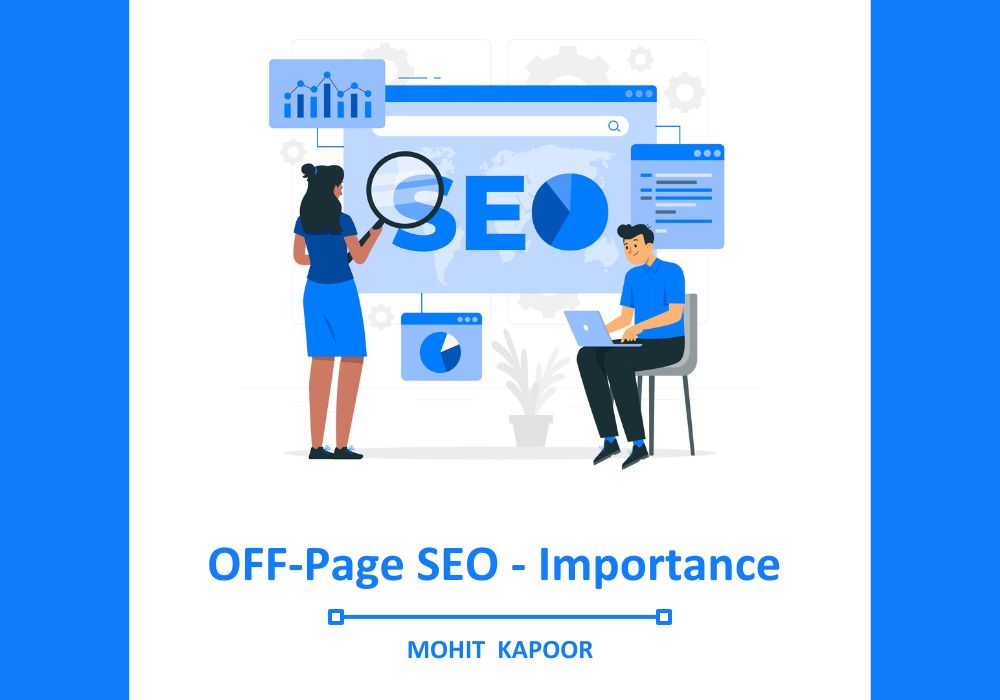When it comes to ranking on Google in 2025, off-page SEO still plays a pivotal role — and it’s often the factor that sets high-performing websites apart from the rest. While many marketers focus exclusively on on-page optimization, off-page efforts can exponentially boost your visibility, rankings, and traffic. But why does off-page SEO continue to be so important in the era of AI-driven search engines and machine learning?
Let’s dive into why this aspect of SEO is non-negotiable, especially when you’re looking to improve keyword rankings and build long-term search engine visibility.
1. Backlinks: The Trust Indicator That Remains Essential in 2025
Backlinks continue to play a pivotal role in off-page SEO in 2025. They are the primary signal of trust and authority that search engines use to evaluate content quality.
However, Google has evolved significantly in its backlink evaluation — it’s not about quantity, but about quality and relevance. The more relevant the backlink, the more powerful it becomes in boosting keyword rankings.
Micro-example:
Imagine you’ve published an in-depth article on AI for digital marketers. If AI leaders like HubSpot or Neil Patel link to it in their blog posts, that’s a huge vote of confidence. Compare this to a random directory backlink, which Google now sees as low value. The key? Focus on earning backlinks from high-trust websites that operate in the same domain as your business — relevance is what makes the link truly impactful.
2. Brand Mentions Are the New Backlinks
While backlinks remain important, brand mentions are becoming equally significant in the off-page SEO landscape. Google’s algorithms have shifted toward entity-based SEO, meaning that mentions of your brand or content across the web — even without a direct link — help establish trust, authority, and relevance.
What does this mean for you? To build a strong online reputation, you need to make sure your brand is being talked about across social media, forums, podcasts, and other platforms.
Micro-example:
Consider a case where a leading digital marketing expert mentions your blog on a podcast about growth hacking. Even though they didn’t link directly to your post, the mention acts as a powerful signal to Google that your content is trusted and relevant.
These types of mentions, especially from high-authority voices in your niche, create a powerful trust factor that directly influences keyword rankings.
3. Topical Authority: More Important Than Ever
In 2025, topical authority is fast becoming the new Domain Authority. While a high DA can still benefit your site, ranking for competitive keywords now requires a deep and consistent focus on a specific topic.
Building topical authority means regularly producing high-quality, well-researched content that addresses various aspects of a given subject. It also means that Google is more likely to rank your content for relevant queries when it recognizes your site as a trusted source for that topic.
Micro-example:
Let’s say your site is dedicated to content marketing strategies. Over time, if you consistently publish insightful, comprehensive guides on content creation, SEO, email marketing, and case studies, Google will view your site as an authority on content marketing. When someone searches for “best content marketing strategies,” Google will more likely surface your content as a top result because your site has shown topical depth.
4. The Role of Off-Page Signals in AI Search
AI-powered search engines like Google SGE (Search Generative Experience) are reshaping the way we think about SEO. Rather than relying only on conventional search rankings, AI search engines now curate and display data from reputable sources, offering more tailored and relevant information directly to users.
This means that your off-page SEO efforts (like backlinks and brand mentions) are now crucial for appearing in these AI-generated search results. If your content is frequently mentioned or linked to by authoritative sources, it increases the likelihood of your page being referenced by AI search systems.
Micro-example:
Imagine you’re an e-commerce brand selling eco-friendly products. If AI-driven search engines pull their data from authoritative eco-bloggers or industry leaders that frequently mention your products, your chances of appearing in the top AI-powered search answers dramatically increase. This visibility, driven by off-page SEO, directly impacts keyword ranking.
5. Social Signals: A Growing Indicator of Relevance
While social media links don’t directly influence rankings, the signals that Google receives from your social activity are powerful. Social shares, likes, comments, and overall engagement signal to search engines that your content is being actively discussed and appreciated by real users.
These interactions show Google that your content is relevant and engaging — and when your content gets traction across social platforms, search engines take notice.
Micro-example:
If you publish an article on growth marketing strategies, and it gets shared thousands of times on platforms like LinkedIn or Twitter, it sends a strong social signal to Google. The more your content spreads across social networks, the more likely it is to rank for competitive keywords.
Conclusion: Off-Page SEO is Important
To win the ranking game in 2025, investing in strong off-page SEO strategies is no longer optional — it’s a competitive edge. It’s essential to integrate strategies that increase brand trust and visibility across various online channels.
Here’s your action plan:
- Earn quality backlinks from authoritative sites within your niche.
- Engage in PR activities to increase brand mentions across the web.
- Topical authority comes from publishing depth-driven content that consistently explores a focused theme or subject area.
- Boost your content reach by turning social platforms into amplifiers — engage, share, and spark conversations that keep your brand top of mind.
In the evolving landscape of SEO, off-page factors will remain a major driving force behind your keyword rankings. With these strategies in place, you can elevate your online presence and ensure your content doesn’t just rank — it dominates.

Leave a Reply